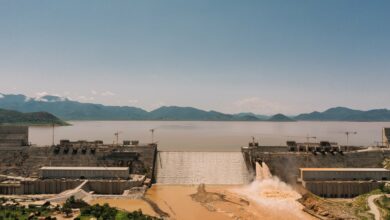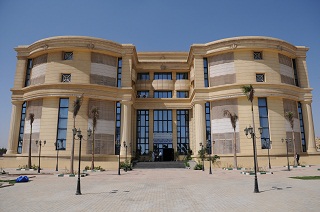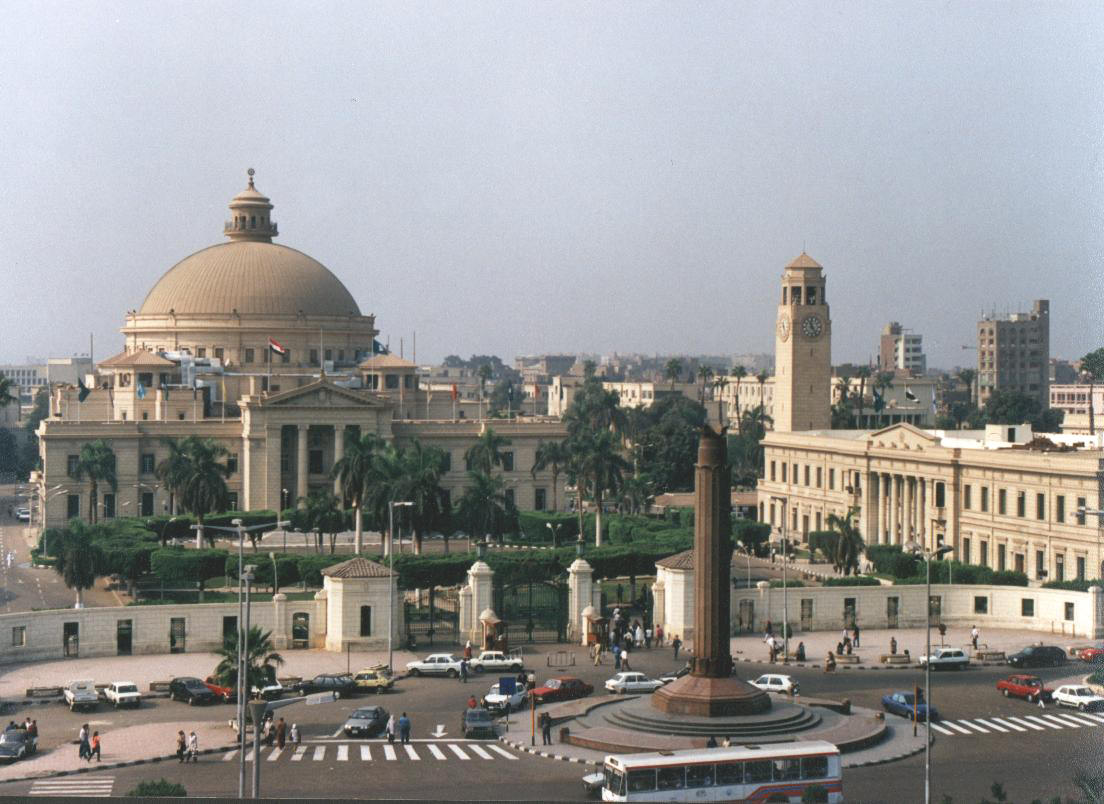Egypt witnessed a large protest by Islamist forces on Saturday, which they dubbed the day of “Sharia and legitimacy.”
The Islamist current deployed its organizational prowess in response to widespread protests staged by secular and liberal forces against President Mohamed Morsy’s recent power grab, manifested in a new constitutional declaration issued on 22 November.
One of the byproducts of this declaration is a hastily conceived constitution, with no political consensus, which Morsy put up for a national referendum on 15 December. The declaration also exempts Morsy’s decisions from judicial oversight.
Twenty-two Islamist parties and movements, including the Muslim Brotherhood’s Freedom and Justice Party and the Salafi Nour Party, called for a “million-man” march in Nahda Square in Giza, which also happens to carry the name of the Brotherhood’s political platform.
Hundreds of thousands gathered from the north and south of Egypt, while another mass protest was staged in the Upper Egyptian city of Assiut, bringing together Islamist followers from seven governorates in Upper Egypt.
The protests took place while an open-ended sit-in was ongoing in Tahrir Square to protest Morsy’s declaration and the constitution, which has raised eyebrows among journalists, judges, Copts, women, secularists and other groups.
The ongoing divergent protests in both Giza and Tahrir squares is symptomatic of the profound political polarization between an Islamist bloc that perceives in the new constitution an end to the revolutionary process and a non-Islamist political force that sees an ongoing revolution.
Key to this polarization is the ability of both sides to mobilize sheer numbers. While Islamists praised themselves for mastering mobilization ahead of the protests, their opponents equally managed to gather hundreds of thousands in the streets and squares of the nation throughout last week.
The Giza protest on Saturday brought in many people from outside of Cairo, particularly the countryside. They were transported by buses, which were parked around Nahda Square bearing placards with the names of different governorates.
Mohamed Ibrahim, an accountant who lives in Manial, points at the crowds of protesters and says, “These are the people of Egypt. Aren’t the people the source of power? Supposedly the Supreme Constitutional Court derives its legitimacy from the people.”
The show of support for Morsy, complete with recorded songs praising the president’s decisions, t-shirts bearing his picture and chants of “long live the president,” overpowered the Tahrir sit-in.
“The protests in Tahrir have given the impression that all Egyptians are against Morsy; we want to show that he has the real support,” says Khaled Refai, an independent Salafi standing in the crowd outside nearby Cairo University.
“I am against the secularists because they are morally corrupt. The Egyptian people are against corruption and corrupt people,” adds Mahmoud Sayed, who hails from the Delta city of Sharqiya.
“The people want God’s Sharia” and “Egypt will be Islamic despite the will of secularists and liberals” were prevalent chants.
A clear defiance and disdain was expressed toward the Tahrir protesters. Morsy supporters stressed that they are the real representatives of the majority of the people, and accused those protesting in Tahrir of being paid by the “enemies of the revolution.”
The leaders of the opposition to Morsy, such as Nobel Laureate Mohamed ElBaradei and former presidential candidates Amr Moussa and Hamdeen Sabbahi, were accused of being agents who serve foreign interests.
“Who are these people who dare talk about a president who’s looking out for the best interests of his people?” asks Ahmed Abdel Alim, a farmer who came from Upper Egypt to join the rally. “He took the necessary measures when he sensed a danger, and we sense that danger too.”
Meanwhile, Morsy’s decisions have been seen in the Giza protest as a means to combat the remains of the old regime in state institutions, as represented by the judiciary.
“Morsy has protected Egypt from becoming a state with no institutions. How can we blame the elected president for trying to protect the country?” says Hassan Shaty, a manager at the Tax Authority. Shaty shares the view of many in the rally that the judiciary has shown bias against Morsy.
The Supreme Constitutional Court had already ordered the mostly-Islamist People’s Assembly dissolved in June, deeming the parliamentary elections law unconstitutional. There were also ongoing court cases threatening the Shura Council and the Constituent Assembly before Morsy protected them from dissolution in his declaration.
“We elected him, and we are behind him until he cleans all that’s corrupt and takes us to stability,” says Mohamed Salem, a plumber who also participated in the rally.
Morsy’s power grab is seen by demonstrators as a viable transient solution, with the ultimate aim of stability. While they concede that the declaration gives Morsy absolute powers, his supporters say that they accept this temporary measure, which would only last until the constitution is passed in a referendum, cancelling all constitutional declarations.
“We want stability; we can’t keep electing bodies just to have them dissolved. Every authority is fighting for itself but where’s the right of the people? We are the source of legitimacy,” says Atef al-Sharbatly, another Morsy supporter in the rally, adding that after the judiciary was deemed biased, it couldn’t be trusted to tamper with elected bodies.
With a firm belief in the intentions and decisions of the president, and a feeling that all sides are conspiring against him, the crowd chants, “You are not alone Morsy, we are behind you.”
Support for Morsy aside, there was also a clear sense that applying Sharia was a long-awaited ambition. The constitution draft has clear stipulations about Sharia principles being the source of legislation, with its “jurisprudential and fundamental basis.”
Hassan Thabet Ammar, the owner of a chain store in Maadi, says, “Sharia is a way of life that suits our culture. Egyptian customs and traditions go in line with Sharia. The Egyptian society does not accept Western liberalism.”
“Muslims and Christians agree on these principles,” he adds. “Ask a Christian, not a Muslim, if he would accept his daughter leaving home when she reaches the age of 16 or having a boyfriend. Egypt is not Europe.”
Emad Abdel Ghaffar, an Agriculture Ministry driver, interrupts, adding, “I do not allow my wife to step outside home. We are farmers who were raised to endorse Islamic values.”
“People are thirsty for Sharia. We do not support the president for who he is, but rather for the Islamist project he promises,” Hesham Darwish, from Hadayeq al-Qobba, says.
“Immunize the Constituent Assembly, we want Egypt to be Islamist,” is a chant that resonates throughout the protest. Protesters also chant, “Bread, freedom and Islamic Sharia” and “Bread, freedom, thank you, Constituent Assembly!” in a pun on the revolution’s landmark slogan, “Bread, freedom and social justice.”
Anwar Qotb, a self-employed man from Giza, says, “The core of the conflict is the Islamic project. … Those fighting against that project are defending personal interests they have gained under Mubarak and corruption which they fear will be revealed.”




